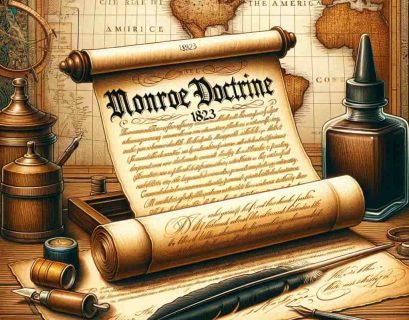A Nation’s Anthem: The Odyssey of The Star-Spangled Banner
“The Star-Spangled Banner,” the public hymn of the US, is something other than a...
The Monroe Doctrine in the 21st Century: Legacy and Challenges
President James Monroe’s 1823 proclamation of the Monroe Doctrine marked an iconic turning point in U.S. foreign policy history. It...
Louisiana Purchase 1803 and American growth
The Louisiana Purchase 1803 and American growth are the most significant land acquisitions in history. It transcended a mere property deal;...
The Lasting Legacy of the War of 1812 in American History
The Lasting Legacy of the War of 1812 in American History, frequently called America’s second...











